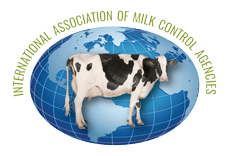Dairy Farmers of Manitoba (DFM) Update
Milk Supply
To stimulate production in the province, Dairy Farmers of Manitoba (DFM) added additional incentive days for December 2018 and January 2019. Unlike quota, incentive days are only available for the month in which they are allotted, and cannot be carried forward in part or whole. Incentive days are utilized once the monthly quota is full. DFM will also be allocating additional quota to dairy farmers in the coming months.
Milk supply to industrial processors in Manitoba during the fall has been challenging due to:
- Strong fall demand leading up to the Christmas period
- Children back in school leading to stronger fluid sales
- Processor expansion in the West coming on-line in early fall – incremental processing added for Western Canada
- Strong demand for cheese in the West – higher orders for milk than normal – could be due to lower milk production in the East
- Milk production in the West is coming in lower than projected as a result of very high butterfat tests which means less volume to fill the same amount of quota
As fluid processors get first call on all of the milk required, DFM has currently been prorating milk supply to industrial milk processors.
Governance
At the December 2018 DFM annual general meeting, a resolution was approved to elect all DFM board members at large vs. districts. Currently, DFM has 3 electoral districts. This decision was in response to a resolution at the 2017 annual general meeting, where dairy farmers asked the board to amend the current election structure to a system where DFM directors could be elected at large.
The change in the election process will be implemented in a staged approach. Each year, one board member position from each of the three districts is up for election. For the 2019 election in November 2019, the three positions up for election would be at large. This would also occur for the 2020 and 2021 elections, where at that time, all board members would be at large. Board member terms are for three years.
The benefits to the system is:
- At large elections will provide Manitoba dairy farmers access to run for all open board member positions
- All Manitoba dairy farmers will have the opportunity to vote for up to three board members in each election.
It was also recognized that issues affect dairy farmers across the province equally.
Research
The Dairy Farmers of Manitoba Discovery and Learning Complex had its grand opening on September 13, 2018 at the Glenlea Research Station. This 60-cow facility, which showcases modern dairy production infrastructure, was made possible by DFM’s key contribution, totaling nearly $2.2 million. The support allows the University to continue its important research in dairy production management to ensure economic and environmental sustainability.
The Complex will provide students with hands-on learning in state-of-the-art facilities. The Complex includes new robotic milking and feeding systems, free stalls for dairy cattle, dedicated spaces for calves, milk collection tanks, above-ground manure storage, new flooring, and related laboratory equipment.
Background
Established in 1974, Dairy Farmers of Manitoba is responsible for:
- Managing the supply of milk in the province.
- Selling milk from Manitoba dairy farms to processors and scheduling its transportation.
- Representing the interests of Manitoba dairy farmers at the provincial and national level.
- Developing and implementing provincial sponsorship and promotional programs.
- Delivering nutrition and dairy agriculture education programs.
All dairy farms in the province are family-owned and operated. Manitoba dairy farmers finance the organization and elect a nine-member board of directors composed of dairy farmers. The board determines the direction and policies of the organization.
Manitoba Dairy Farming Facts & Figures
| Number of dairy farms (as of October 2017) | 275 |
| Average milking herd size | 165 cows |
| Number of milking cows | 45000 |
| Total amount of milk produced in the 2017-18 dairy year(August 1 to July 31) | 402 million litres |
| Number of dairy processing plants | 12 |
